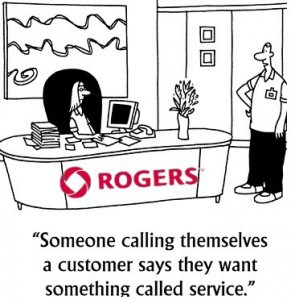While cell phone companies tell you the only fair way to price wireless data is to charge you for what you use, these same companies are now considering how to reverse that argument and force you to buy more expensive “unlimited voice calling” plans you may not want or need.
The Wall Street Journal reports that AT&T is the most vocal proponent of ditching “tiered minute plans” for voice calls, which let consumers pick cheaper plans with fewer calling minutes. With Americans talking less and less on their cell phones, customers have been downgrading voice plans to less expensive options.
Industry trade group CTIA-The Wireless Association notes the average cell phone call dropped from 3.03 minutes in 2006 to just 1.78 minutes in 2011. Customers who rely entirely on their cell phone and no longer have a landline used to talk an average of 826 minutes per month in 2007. Last year, that number dropped to 681 minutes, according to CTIA.
| Verizon Wireless Allowance | Monthly Access | Overage |
|---|---|---|
| 450 | $39.99 | 45¢/Minute |
| 900 | $59.99 | 40¢/Minute |
| Unlimited | $69.99 |
Verizon Wireless sells customers 900 minutes for $59.99. But the company does not count minutes used during nights and weekends or when placing/receiving calls to or from other Verizon Wireless phones. If a customer now talking less still pays $60 for a 900 minute plan, they could shave $20 a month off their monthly bill if they kept their daytime calling to 450 minutes a month. Many do. In fact, younger customers use their smartphones for talking even less, with some not even reaching one hour of voice calling a month.

Verizon's cattle call? Will the company herd all of its wireless customers to unlimited voice calling at a higher price?
Given the option to downgrade, customers are jumping at the chance. With voice revenue declining 2-4% in the first quarter, Wall Street has been pressuring carriers to act.
The answer that works for them, although probably not for you, is forcing all customers to purchase an unlimited voice calling plan at contract renewal time. At today’s prices, that could add an extra $30 a month for customers used to paying $40 for a basic 450-minute calling plan.
“The industry’s definitely moving towards unlimited,” AT&T Mobility Chief Executive Ralph de la Vega said in a recent interview. “Especially as more people adopt smartphones that have voice capabilities over the Internet, segmented voice plans will become less relevant.”
Ironically, cell phone companies that have spent the last year or two defending the end of unlimited mobile data as “fair” because customers can “choose exactly the plan they need,” are adopting a completely different strategy to push for unlimited voice calling.
“It’s more important to offer a complete solution to consumers which is really, truly unlimited,” said T-Mobile USA Chief Executive Philipp Humm in a recent interview. “The new world is a completely unlimited, worry-free world.”
Sprint agrees, although its insistence on preserving an unlimited data experience for its customers protects the company from charges of hypocrisy.
Fared Adib, head of product development for Sprint, told the Journal eliminating tiered voice options makes sense because it simplifies choices for customers. “People like the freedom of not having to worry about either data or voice,” he said.
No cell phone company would go on the record as the first to discard tiered voice plans, but AT&T led the way to ending unlimited data, and the company is increasingly vocal about ending tiered voice calling as well.
At current prices, consumers could pay substantially higher cell phone bills as a result.
Both AT&T and Verizon Wireless currently charge $70 a month for unlimited calling. Sprint charges $99.99 for its combined unlimited calling and data plan. T-Mobile charges $60 for unlimited talking and texting. Compelling customers to adopt unlimited calling plans will likely bring smartphone monthly charges well above $100 a month when factoring mandatory data plan add-ons, taxes, surcharges, and fees.
Customers who find this pricing intolerable will likely gravitate to prepaid calling plans, which is where an increasing number of occasional and light cell phone users have already ended up.
[flv width=”512″ height=”308″]http://www.phillipdampier.com/video/WSJ Voice Calling Plan Changes 6-5-12.flv[/flv]
The Wall Street Journal explores why cell phone companies want to compel customers to choose unlimited voice calling plans. (4 minutes)


 Subscribe
Subscribe




